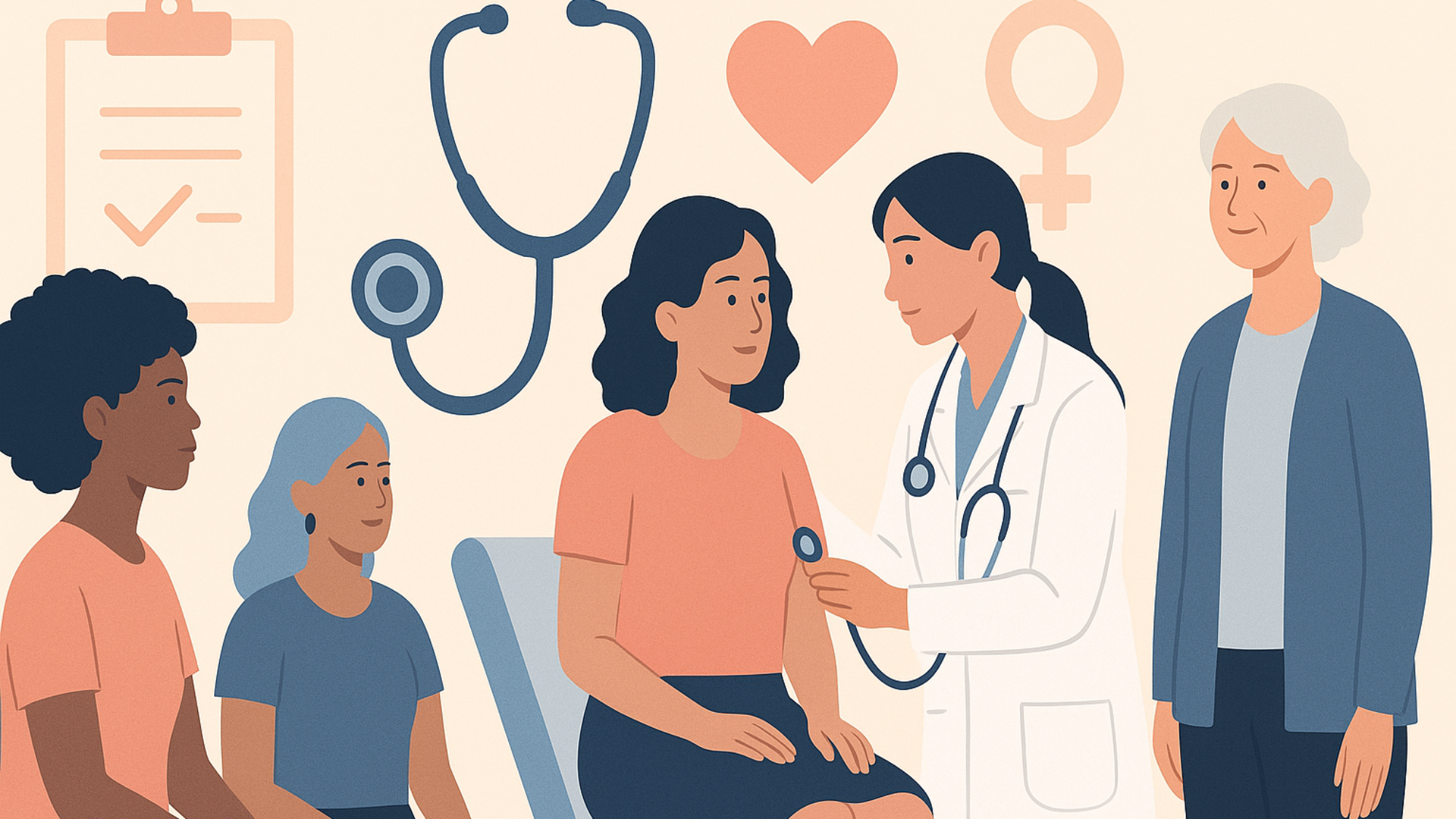A Women’s Health Checkup is a series of routine medical examinations and screenings, such as Pap smears, breast exams, and bone density tests, designed to assess and maintain a woman’s overall well-being. By undergoing a women’s health checkup, you can detect early signs of conditions like cervical cancer, osteoporosis, and cardiovascular disease, enabling timely interventions and personalized care plans to safeguard your health at every stage of life.
Why Regular Women’s Health Screening Matters
Women’s health screening is not just a medical formality—it’s a vital tool for preventing chronic diseases, identifying risk factors, and maintaining reproductive and hormonal balance. Early detection of conditions like cervical cancer, osteoporosis, and cardiovascular disease significantly improves treatment outcomes. Furthermore, personalized female health examinations help tailor lifestyle recommendations, ensuring each woman receives the most relevant advice for her unique biology and life stage.
Key Benefits of a Comprehensive Women’s Health Checkup
- Early Detection: Identifies precancerous changes (Pap smear) and lumps (breast exam) before symptoms appear.
- Preventive Care: Enables vaccination (HPV), bone health evaluation, and cardiovascular risk assessment.
- Hormonal Balance: Monitors thyroid function and reproductive hormones to manage symptoms like irregular cycles or menopause.
- Mental Well-being: Screens for stress, anxiety, and depression alongside physical exams.
Essential Health Checkup Components for Women
Below is a table summarizing the most important screenings and their recommended frequencies across different age groups.
| Age Group | Test / Screening | Frequency | Purpose |
| 20–29 years | Clinical breast exam | Every 1–3 years | Detect lumps or abnormalities early |
| Pap smear | Every 3 years | Screen for cervical cancer and HPV-related changes | |
| Blood pressure & cholesterol | Every 2 years | Assess cardiovascular risk | |
| Skin examination | Annually | Check for signs of skin cancer | |
| 30–39 years | Mammogram (if high risk) | As directed by provider | Early detection of breast cancer |
| Pap smear + HPV co-test | Every 5 years | Enhanced cervical cancer screening | |
| Glucose test | Every 3 years | Screen for type 2 diabetes | |
| 40–49 years | Mammogram | Every 1–2 years | Standard breast cancer screening |
| Bone density scan (DEXA) | Baseline at 40–49 | As directed by the provider | |
| Thyroid function tests | Every 5 years | Monitor thyroid disorders | |
| 50–64 years | Mammogram | Annually | Detect breast cancer |
| Colonoscopy | Every 10 years | Screen for colorectal cancer | |
| Bone density scan | Every 2 years | Ongoing osteoporosis assessment | |
| Diabetes & lipid profile | Annually | Monitor metabolic and cardiovascular health | |
| 65+ years | Comprehensive geriatric assessment | Annually | Evaluate overall health, mobility, and cognition |
| Hearing & vision tests | Annually | Detect sensory changes | |
| Vaccinations (flu, shingles, COVID) | As recommended | Prevent infectious diseases |
Lifestyle and Wellness Evaluations
Screening tests form the backbone of preventive care, but a holistic women’s health checkup also includes lifestyle assessments and mental wellness screenings. Key areas to address include:
- Nutrition & Diet: Personalized dietary analysis to ensure adequate micronutrients (iron, calcium, vitamin D).
- Physical Activity: Evaluation of exercise habits; guidance on weight-bearing activities to strengthen bones.
- Stress Management: Screening for anxiety, depression, and burnout; recommendations for mindfulness, counseling, and social support.
- Sleep Quality: Assessment of sleep patterns, possible sleep apnea, and insomnia; tips for improved rest and recovery.
Recommended Screening Frequency by Age Group
| Age Group | # of Recommended Screenings |
| 20–29 | 4 |
| 30–39 | 5 |
| 40–49 | 6 |
| 50–64 | 7 |
| 65+ | 6 |
Note: This table illustrates the total number of key health checkup components advised per age bracket. This bar chart illustrates the total number of key health checkup components advised per age bracket.
Incorporating Advanced Diagnostics and AI-Powered Tools
Emerging technologies, such as AI-enabled risk calculators and telehealth platforms, are transforming women’s health examinations. Digital symptom checkers and personalized health dashboards can flag early warning signs, recommend targeted lab tests, and generate actionable insights based on individual data patterns. Integration of genomic screening and wearable device analytics further enhances preventive care, empowering women to take control of their health journey.
Popular Female Health Tech Solutions:
- AI Symptom Analyzers: Interactive tools that predict potential issues like thyroid dysfunction or cardiovascular risk based on symptom input and vital signs.
- Genetic Risk Screening: Tests for BRCA mutations and other hereditary markers to guide personalized surveillance.
- Tele-Gynecology: Virtual consultations and remote monitoring for menstrual health, fertility tracking, and hormone therapy management.
How to Prepare for Your Women’s Health Checkup
A well-prepared patient maximizes the benefits of her appointment. Follow these steps before your next visit:
- Track Your Cycle: Use a journal or app to note menstrual changes, PMS symptoms, and fertility indicators.
- Compile Medical History: List past surgeries, family history of cancer or osteoporosis, and current medications and supplements.
- Gather Laboratory Records: Have prior blood work, lipid panels, and imaging results available for comparison.
- Prepare Questions: Write down concerns about mood swings, sleep disturbances, weight changes, or libido.
- Follow Fasting Guidelines: For glucose or lipid tests, fast as instructed (usually 8–12 hours beforehand).
Conclusion
A proactive women’s health checkup strategy is essential for safeguarding well-being and enhancing quality of life. By combining age-specific screenings, lifestyle assessments, and advanced diagnostics, women can take charge of their health, detect issues early, and enjoy lasting vitality. Schedule your comprehensive exam today and invest in the future of your wellness.


Add a Comment